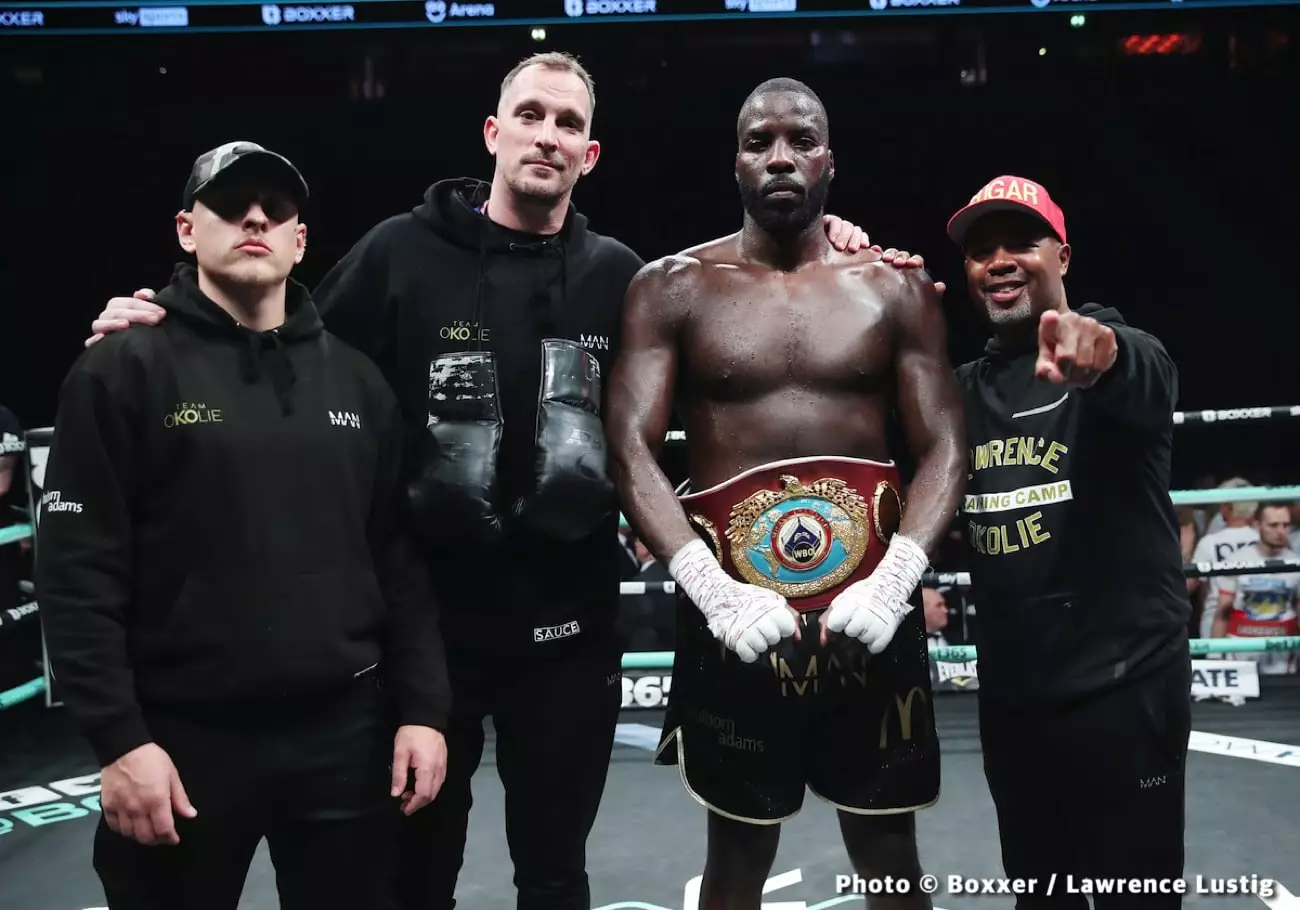Boxing has always thrived on intrigue, drama, and the promise of spectacle. In recent months, the sport has embraced an unexpected trend that captivates and perplexes fans alike — the return of aging heavyweights who once commanded the ring during their prime. Fights involving seasoned fighters like Lawrence Okolie, Luis Ortiz, Ike Ibeabuchi, and even Mike Tyson have stirred conversations about both the viability and the implications of such matchups.
One of the most anticipated pairings in this heavyweight renaissance is the potential clash between Lawrence Okolie and Luis Ortiz. Okolie has made a name for himself in the cruiserweight and bridgerweight divisions, but his decision to step into the heavyweight ring against the veteran Ortiz raises eyebrows. Critics argue that facing Ortiz, a fighter who has been inactive for over a year, offers little return for Okolie. At 45, Ortiz’s age puts him at a significant disadvantage; he is often described as being slower and perhaps out of touch with the demands of modern boxing. The British Boxing Board’s stance on sanctioning this fight only adds weight to the question of its rationale.
Despite those concerns, the appeal lies in the unpredictability of heavyweight matchups. Fans are eternally drawn to the heavyweight division where anything can happen. Okolie’s ambition to fight Ortiz might stem from a desire for recognition that transcends the confines of lower weight classes, and beating a recognized name like Ortiz—albeit an aging one—could elevate his status significantly. However, in a sport where legacy is paramount, some wonder whether he risks too much by engaging in what some consider a futile endeavor.
Another unlikely pairing making the rounds is the potential fight between Ike Ibeabuchi and Kenzie Morrison. Ibeabuchi, largely inactive since his heyday in the 1990s, brings a long history filled with both prowess and controversy, while Morrison steps into the ring with a promising record. The staggering age difference—51 years for Ibeabuchi compared to Morrison’s 34—poses further questions. Fans are once again left scratching their heads about the purpose of this matchup, as it could border on the ridiculous.
This proposed fight provides a unique lens into the sport’s obsession with nostalgia. Ibeabuchi’s remarkable undefeated record (20-0 with 15 knockouts) stands in stark contrast with Morrison’s relatively recent successes, making it difficult to predict the outcome. Would an older, once-dominant fighter hold his own against a still-vibrant competitor? Or would it simply serve as a spectacle that draws attention, regardless of its legitimacy within competitive boxing?
The intrigue doesn’t end with these two matchups. Oliver McCall, the former WBC heavyweight champion, defies conventions by continuing his career at the age of 59. His recent knockout victory reinforces the notion that age is but a number—at least for some. With plans to face Gary Cobia, McCall’s resurgence begs the question: how far can nostalgia push the boundaries of safety and competitiveness in boxing?
Even more concerning is the rumored return of “Iron Mike” Tyson. The boxing legend, now 58, tantalizes fans with the notion of another fight, potentially against Evander Holyfield. The implications of such a matchup are staggering. Tyson’s last outing, while a commercial success, was far from a conventional matchup, leading many to question whether such a spectacle should be revisited.
As much as boxing thrives on sensationalism, it also bears a social responsibility to prioritize the health and safety of its athletes. While older fighters may draw crowds—offering a nostalgic aura that appeals to longtime fans—a line must be drawn to protect the integrity of the sport. The chase for ratings and record-breaking pay-per-view sales must not overshadow the need for fighter welfare.
As these eccentric matchups continue to circulate, the boxing community must pose critical questions: does the essence of boxing hinge on entertainment alone, or does it require prioritizing competitive skill and athlete safety? Balancing the two will determine not only the future of heavyweight boxing but also the legacy of this storied sport.

